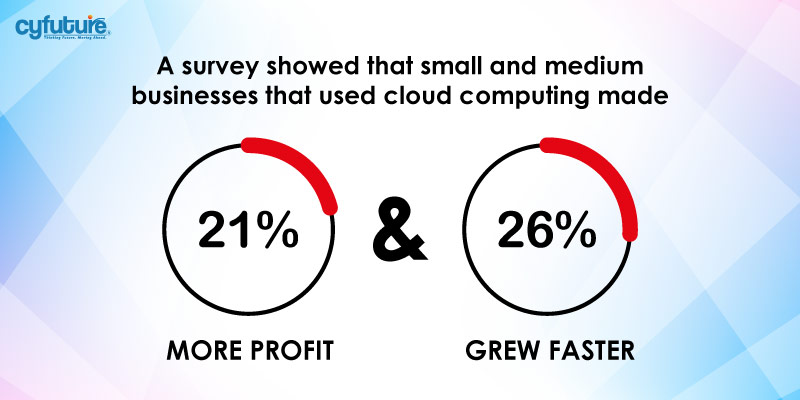-
Get Cloud GPU Server - Register Now!
Toggle navigation

Do you know that the Indian public cloud services market is so huge that it is expected to touch a mark of $17.8 billion by 2027? Yes, you heard that right. Cloud computing has proved to be a revolutionary innovation in the Indian digital landscape. While the IT industry is growing at an unprecedented pace, there are more and more innovations occurring each passing day. With the growth in the IT industry, the demand for cloud infrastructure and managed cloud services is also rising. Thus, there are multiple cloud service providers entering the Indian market, providing top-notch cloud solutions at an affordable cost.
You might be wondering why are so many cloud service providers entering the Indian market and why organizations rely on them so much. This is majorly because there are multiple advantages and benefits provided by service providers, which make them a great choice to partner with. In this blog, we will delve into the details and explore all the benefits. But before we dive into the details, let us have a look at some stats and data.
These staggering figures completely justify why cloud computing is a necessity and why organizations are embracing the cloud. It is now time to explore the benefits offered by cloud service providers that play a key role in empowering success through technology.
Growth and development of cloud computing in India has been phenomenal in recent years, with more companies adopting cloud services to modernize their IT infrastructure. Market trends indicate that the adoption of public clouds such as Amazon Web Services (AWS), Microsoft Azure, and Google Cloud Platform is on a steady rise due to their scalability, affordability, and agility. Private clouds are preferred by some organizations for security reasons while others opt for hybrid models that offer a mix of public and private cloud services.
AWS leads the pack followed by Microsoft Azure and Google Cloud Platform respectively in terms of revenue share among other providers like IBM and Oracle who have also made significant progress in India’s cloud computing sector. Overall, India presents immense potential as an emerging market for global players seeking expansion opportunities while providing local businesses with access to cutting-edge technologies at affordable prices through various partnership models such as joint ventures or collaborations with local firms.

There are various advantages and benefits of cloud which include cost-efficiency, scalability, flexibility, reliability, security, and much more. Let’s dive into the details and explore these advantages.
Cloud service providers in India offer a cost-effective alternative to traditional IT infrastructure. Rather than investing in expensive hardware and maintaining it, businesses can leverage the cloud’s pay-as-you-go pricing model. This means organizations only pay for the resources they use, allowing for better budget control and cost optimization. One of the core features and benefits of cloud services is they eliminate the need for hardware maintenance and upgrades, reducing operational expenses. Thus, by leveraging the cloud’s cost efficiency, businesses can redirect their financial resources toward strategic initiatives and growth-oriented endeavors.
Businesses grow with time and they require additional resources for cloud computing. This is where scalability becomes a key advantage for businesses’ fluctuating demands. Whether an organization experiences sudden spikes in demand or expects steady growth, the cloud enables effortless scalability. With just a few clicks, businesses can expand or downsize their infrastructure, ensuring optimal resource allocation and cost efficiency. The flexibility to adapt resources on-demand empowers organizations to stay agile and responsive in a rapidly evolving market.
By leveraging cloud services, businesses can focus on their core competencies and drive innovation. Offloading infrastructure management to cloud providers allows organizations to allocate resources toward product development, research, Sales & marketing, and other strategic initiatives. Cloud services offered by service providers offer a platform for rapid experimentation, enabling businesses to test new ideas without significant upfront investments. This fosters a culture of innovation, accelerates time-to-market, and positions organizations ahead of competitors.
For organizations, compromising data can be disastrous and can have a significant impact on their business. Thus they need effective security measures in place to safeguard their data and other digital assets from cyber attacks and other external threats. Cloud service providers prioritize data security, implementing robust measures to safeguard valuable information. By hosting data in the cloud, businesses benefit from secure storage and encryption protocols, protecting against unauthorized access and data breaches. Additionally, cloud providers often employ multi-factor authentication, advanced firewalls, and routine backups to ensure data integrity. This heightened level of security alleviates concerns about on-premises vulnerabilities and offers peace of mind to businesses and their customers.
There is no denying that even after deploying various security measures, there can be data loss due to any external factor or technical issue. Cloud services offer robust disaster recovery and business continuity solutions. Traditional disaster recovery methods often require significant investments in secondary data centers, but with cloud services, businesses can replicate their infrastructure and data in geographically diverse locations. In the event of a hardware failure, natural disaster, or other disruptive events, organizations can quickly recover their systems and resume operations. Cloud-based backups and replication ensure minimal downtime, reducing the potential for revenue loss and maintaining customer trust.
In an organization, there are multiple teams and departments that need to work in sync with each other. Additionally, there is a lot of data shared between these teams to ensure optimal functioning. Cloud service providers facilitate easy remote access that streamlines communication. Easy remote access means that end-users have a reliable and secure way to communicate and share outside of traditional methods. Many stakeholders can share real-time access to essential files, view and report on projects together, or even work on documents simultaneously. Many organizations benefit from this capability, especially the ability to remotely access and share records and documents to and from anywhere in the world.
To wrap up, it is pretty clear that cloud service providers are empowering businesses in India by offering an ocean of advantages. From cost-efficiency and scalability to enhanced security and disaster recovery, cloud solutions equip organizations to thrive in the digital age. As the Indian cloud market continues to surge, embracing the power of cloud services will be crucial for businesses seeking success and sustained growth. By partnering with the right cloud service provider, organizations can unlock the full potential of the cloud and navigate the ever-evolving technological landscape with confidence.
Cyfuture, a leading cloud service provider in the Indian market has gained massive popularity and recognition amongst the top industry leaders. Boasting over 22 years of strong experience, Cyfuture excels in providing cloud solutions such as SaaS, Paas, IaaS, DRaas, BaaS, and more. With over 10,000 satisfied clients, Cyfuture is thriving in this competitive landscape and delivering state-of-the-art cloud solutions to global clients across various industries. If your business needs a cloud solution, look no further as Cyfuture is a one-stop solution for all your business needs.
FAQs
Q1 Which organizations require cloud services?
Answer: Nearly all organizations can benefit from cloud services. From small startups seeking cost-effective solutions to large enterprises requiring scalability and agility, cloud services cater to diverse needs. Even educational institutions and government agencies are utilizing the cloud for storage, collaboration, and data analysis.
Q2 Which are top 5 cloud service providers worldwide?
Answer: The top 5 cloud service providers worldwide in 2024 are:
Amazon Web Services (AWS): The market leader, known for its broad range of services and global reach.
Microsoft Azure: Strong in hybrid cloud solutions and integration with Microsoft products.
Google Cloud Platform (GCP): Geared towards AI, machine learning, and data analytics.
Alibaba Cloud: Dominates the Chinese market and offers competitive pricing.
IBM Cloud (Kyndryl): Focuses on security, multi-cloud management, and enterprise solutions.
Q3 What is hyperscale in the cloud?
Answer: In computing, hyperscale is the ability of an architecture to scale appropriately as increased demand is added to the system. This typically involves the ability to seamlessly provide and add compute, memory, networking, and storage resources to a given node or set of nodes that make up a larger computing, distributed computing, or grid computing environment. Hyperscale computing is necessary in order to build a robust and scalable cloud, big data, map reduce, or distributed storage system and is often associated with the infrastructure required to run large distributed sites